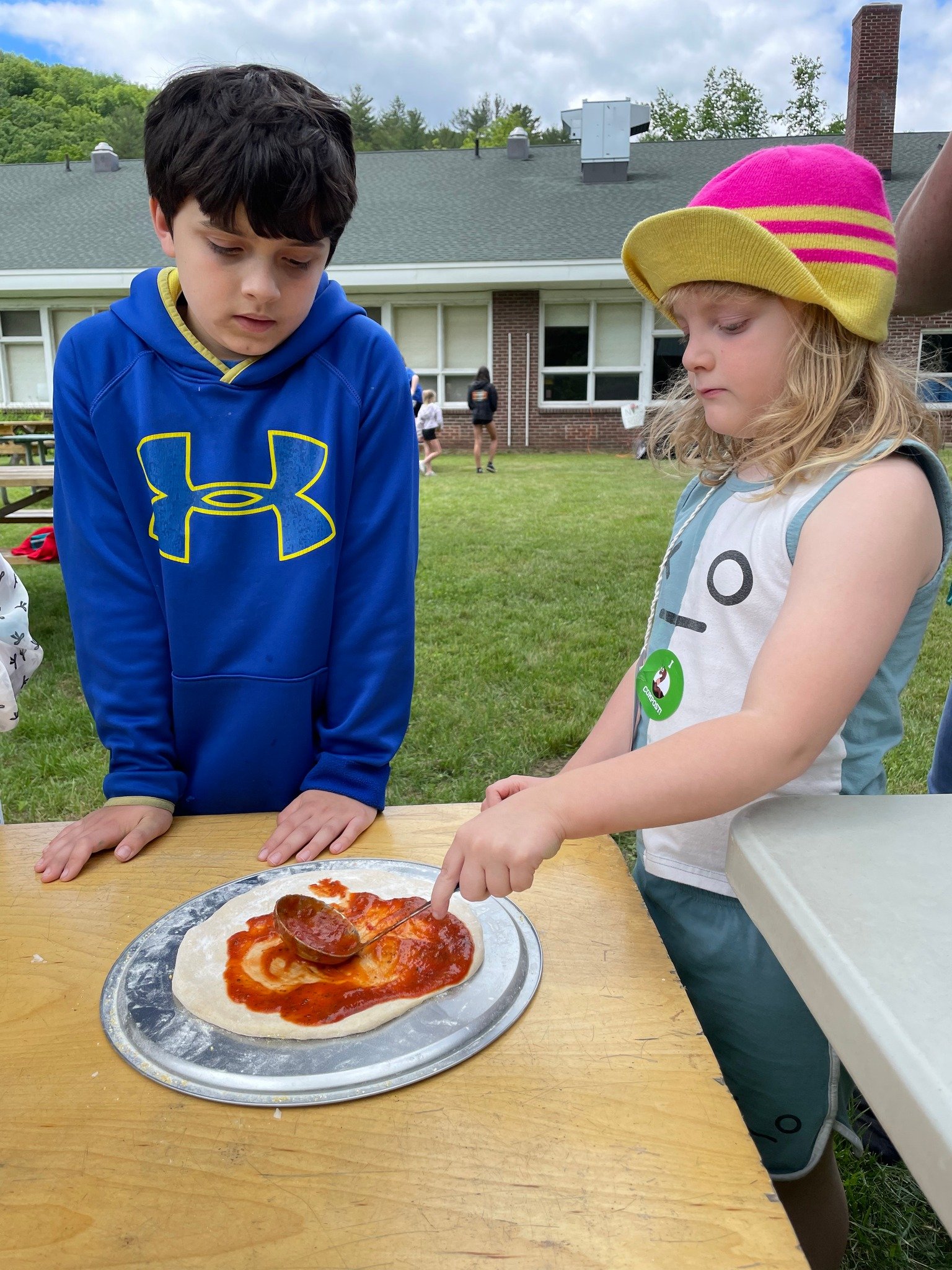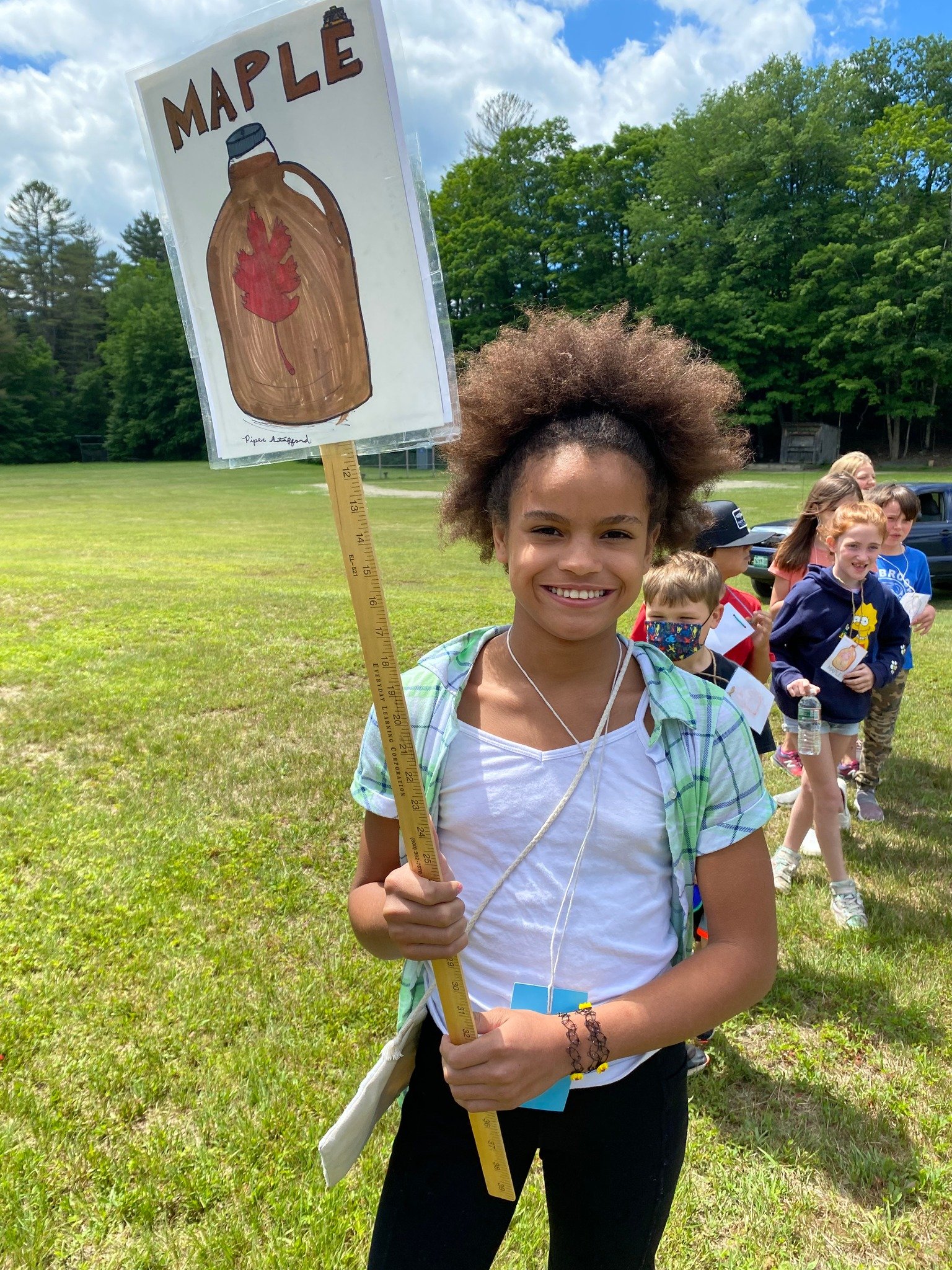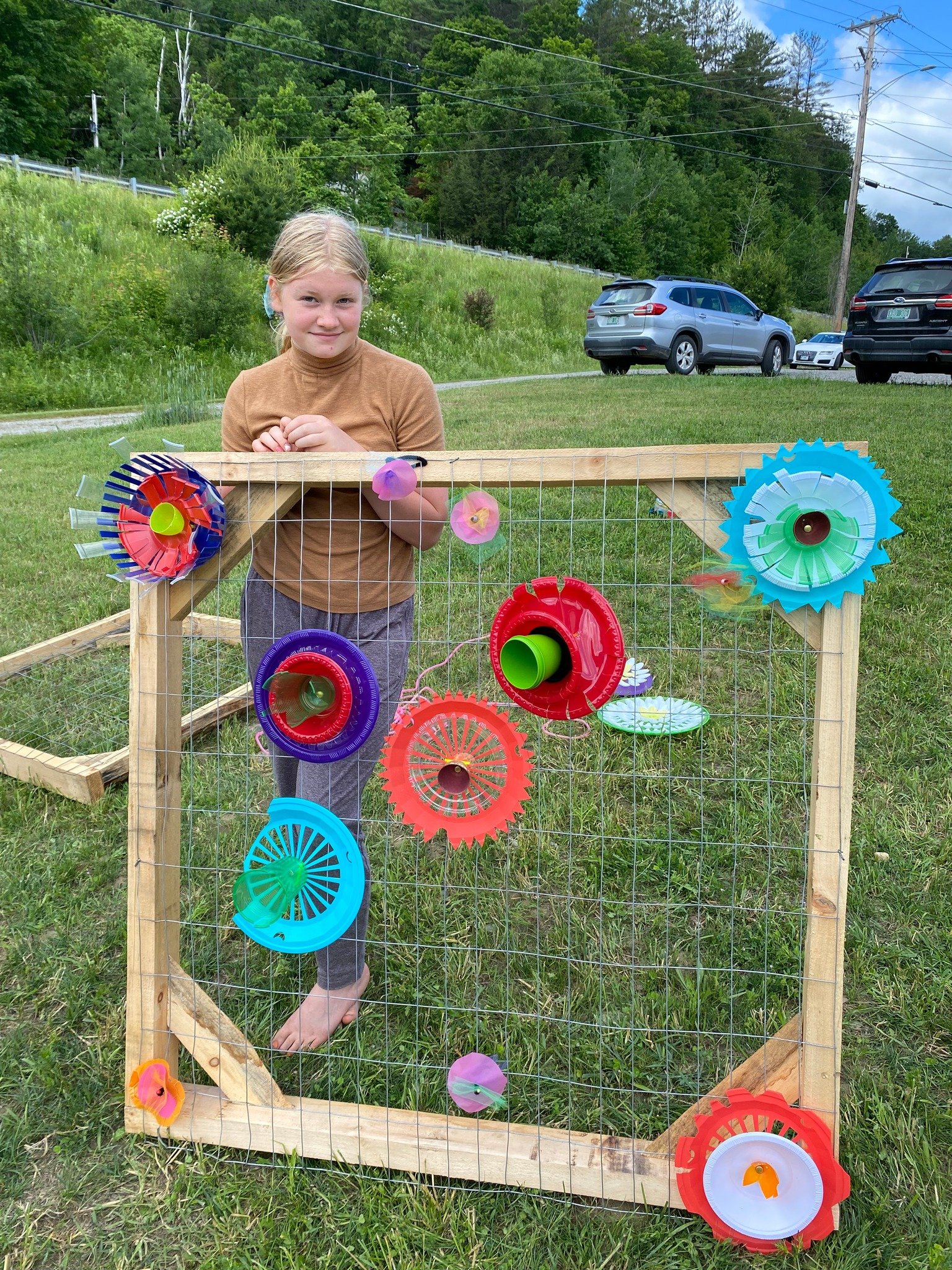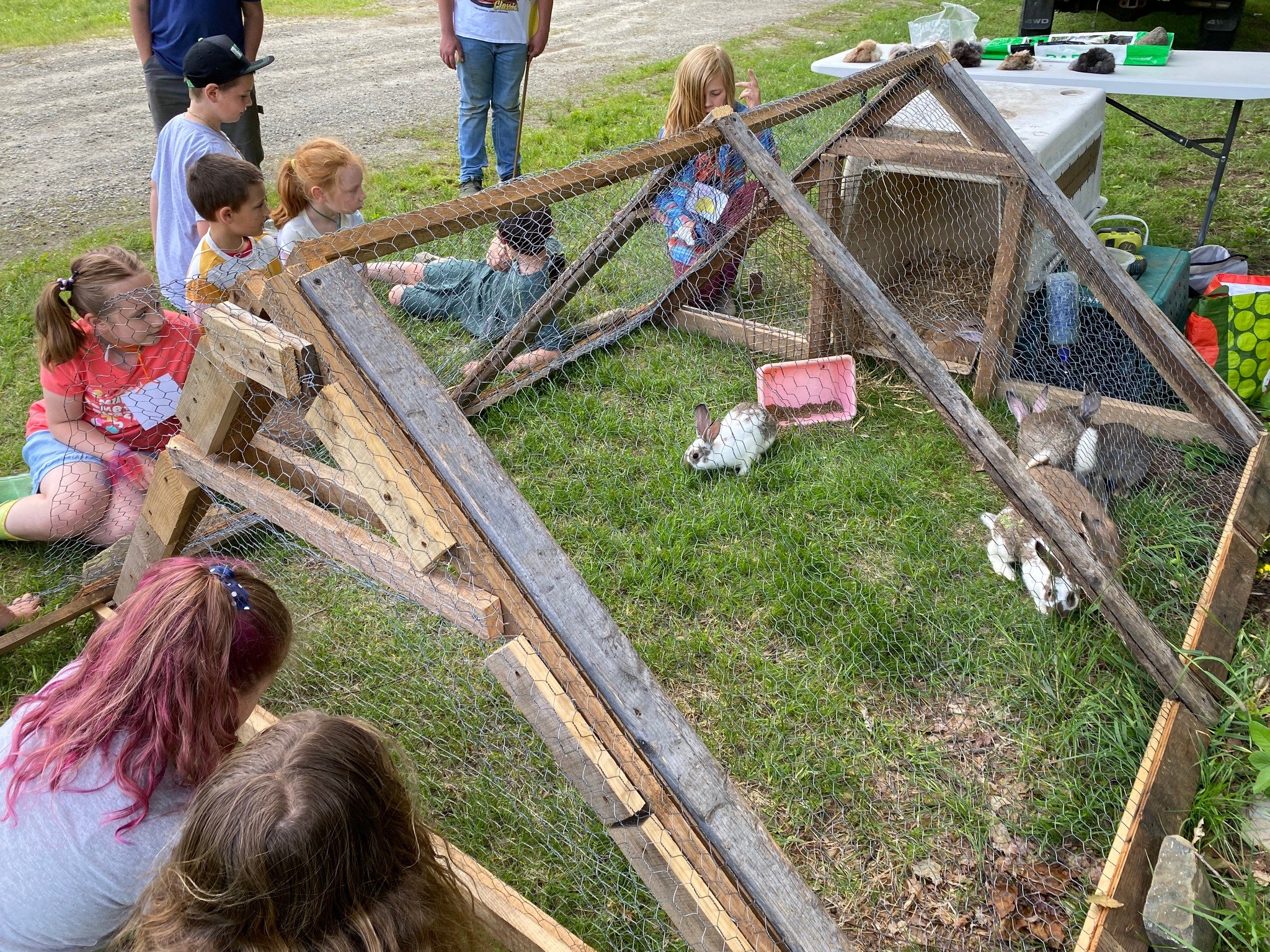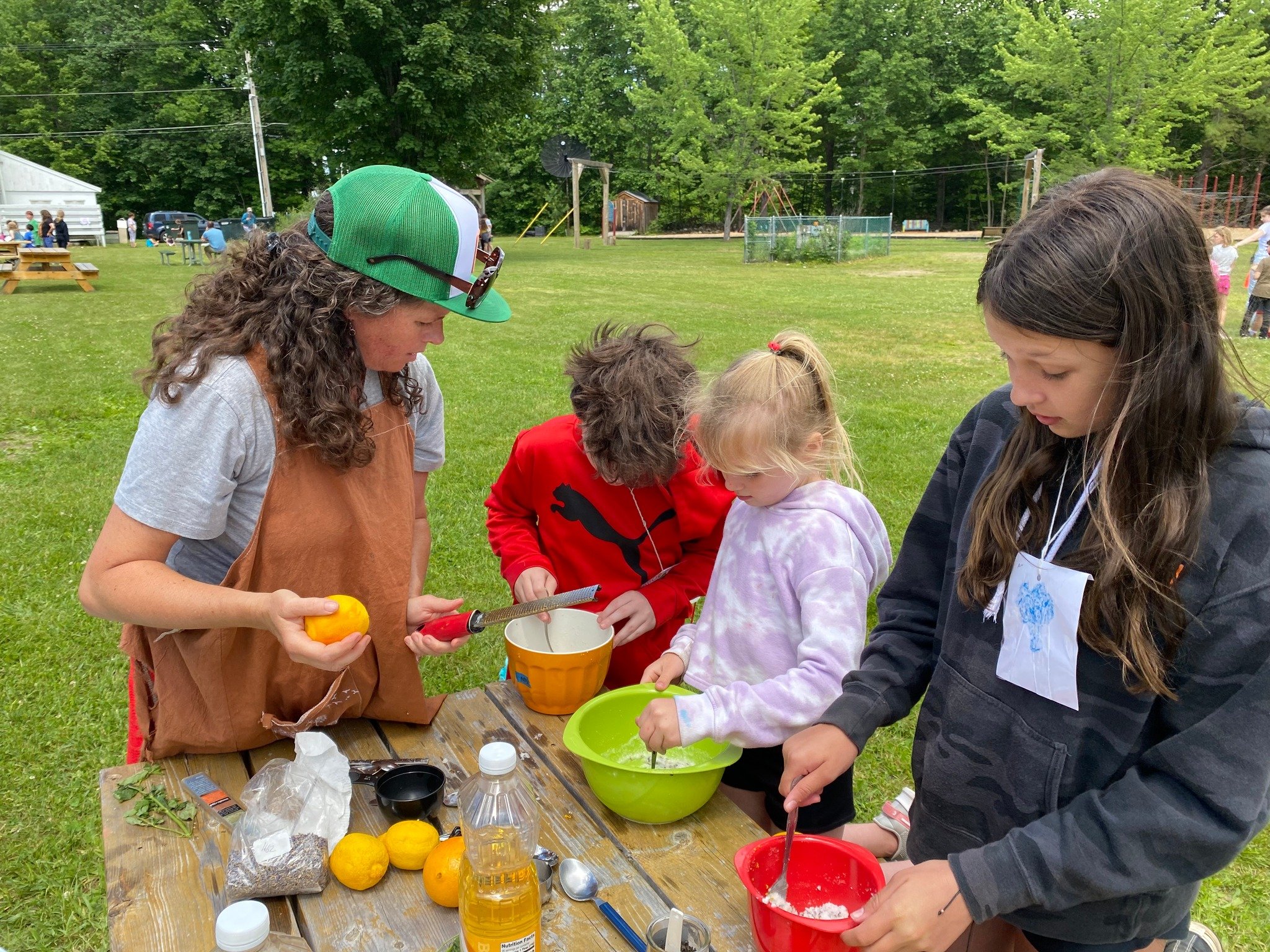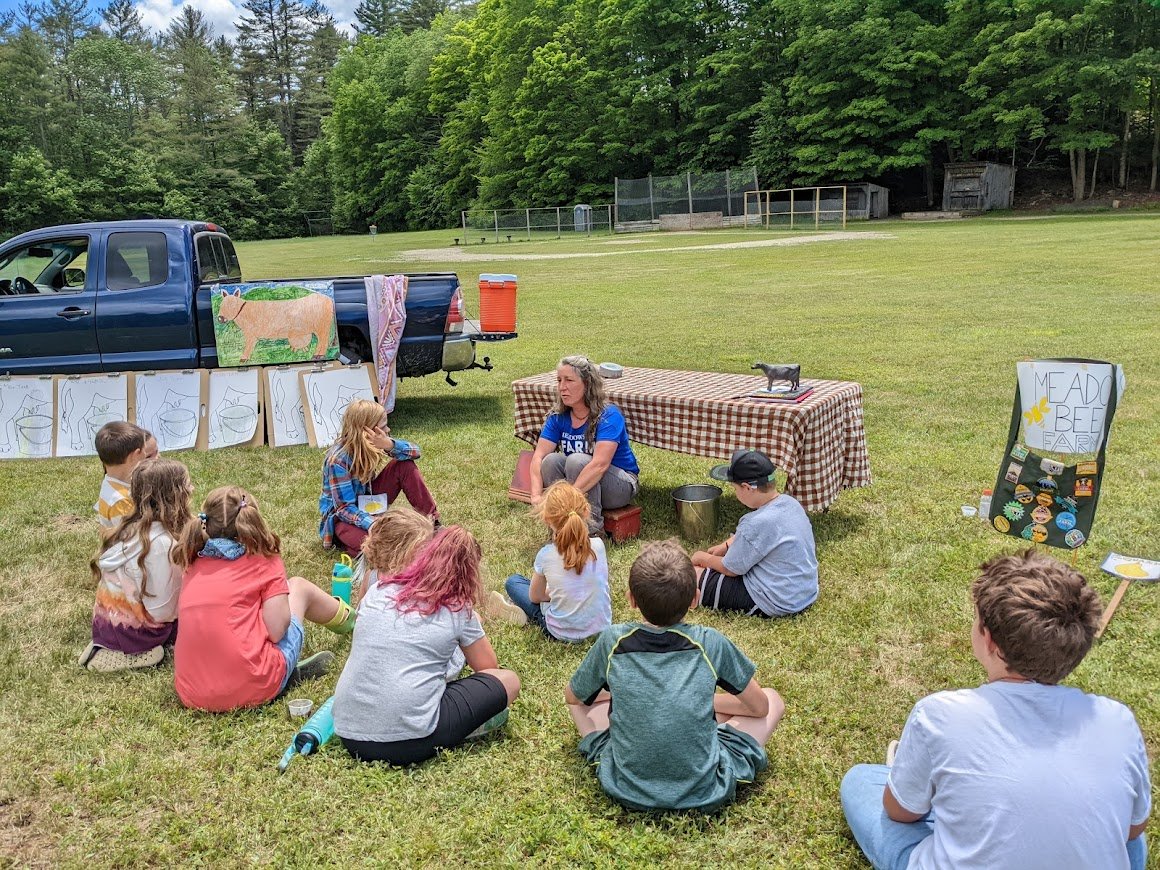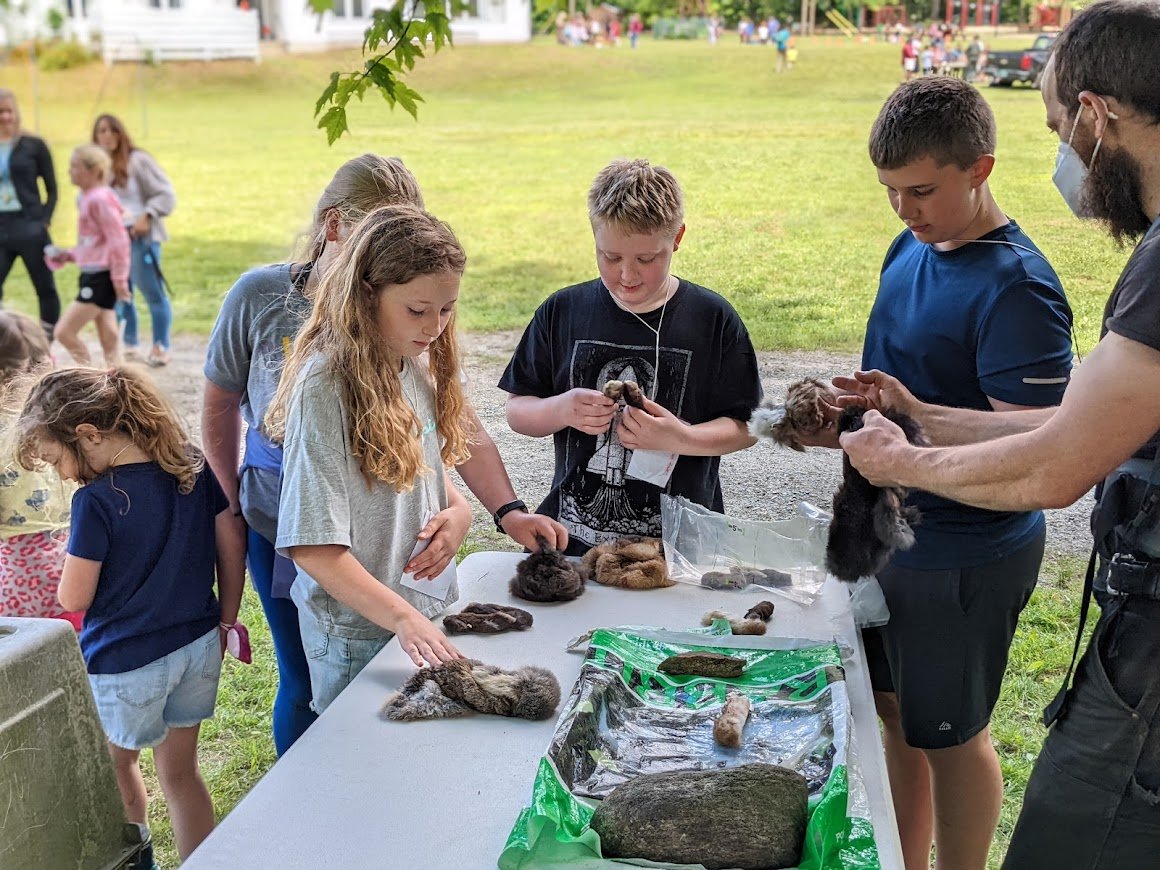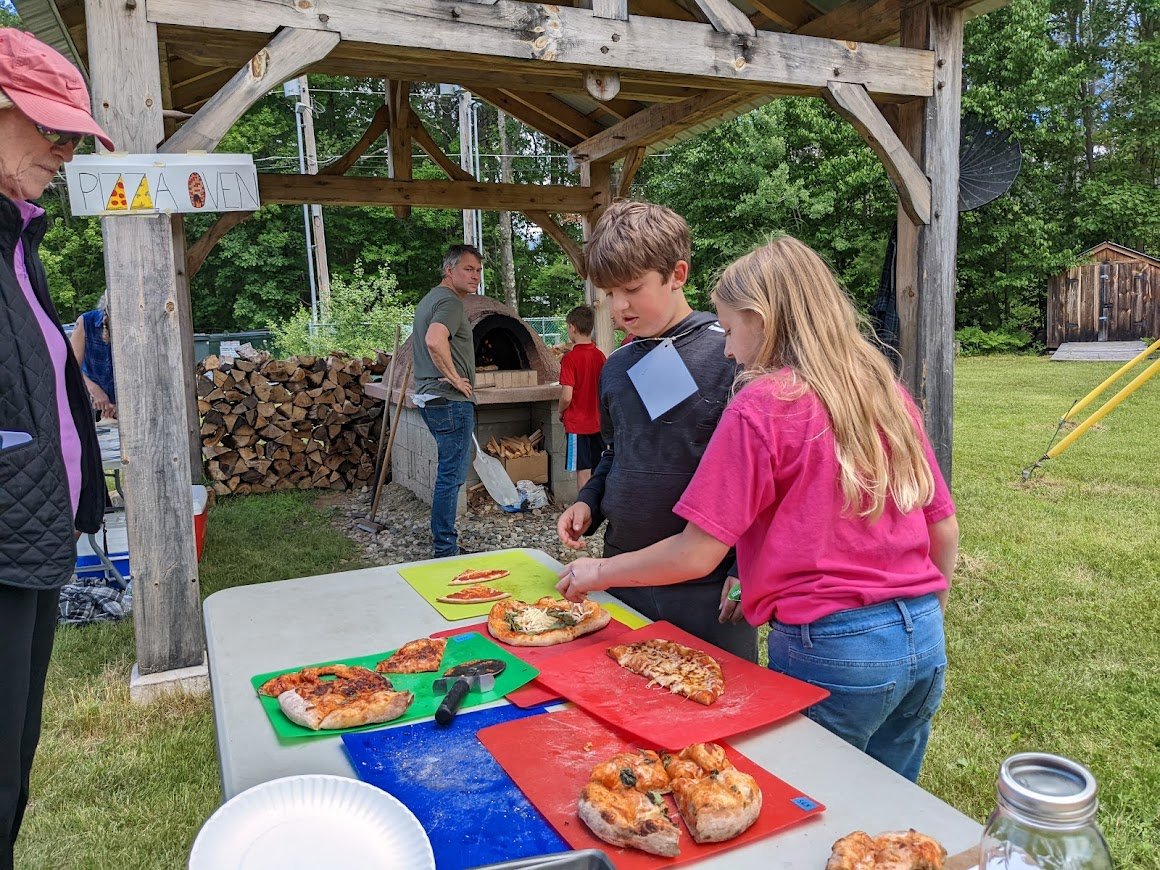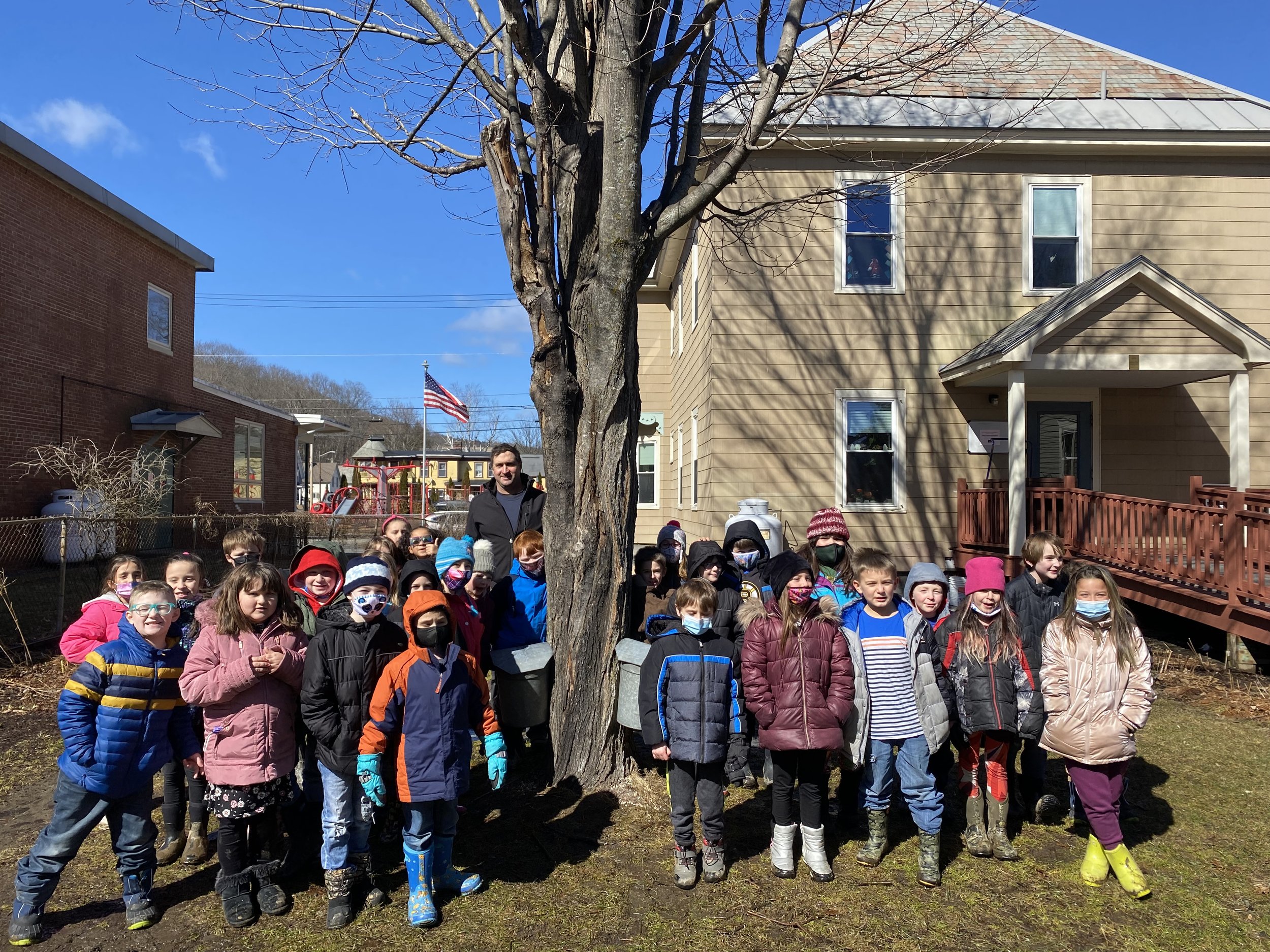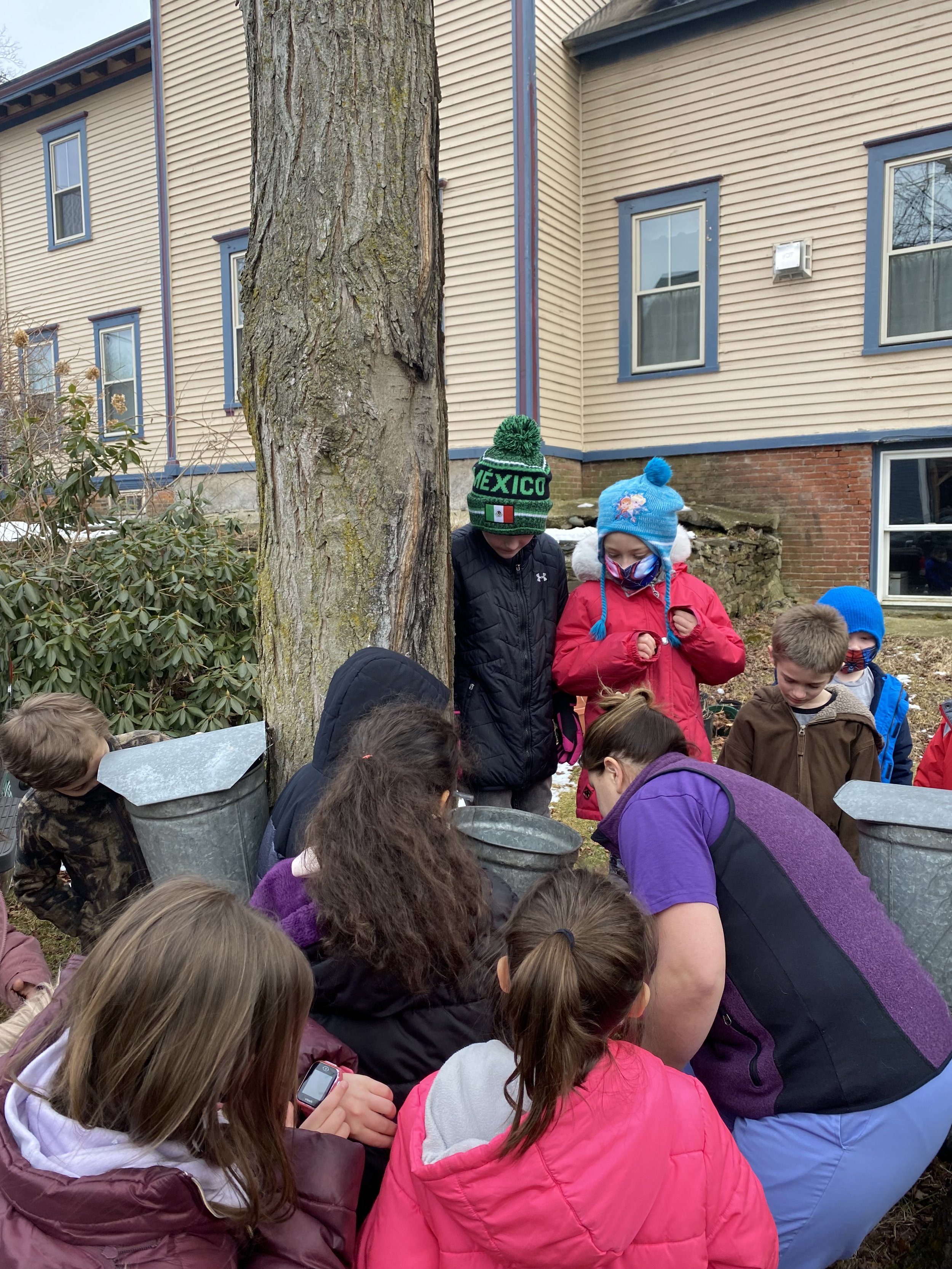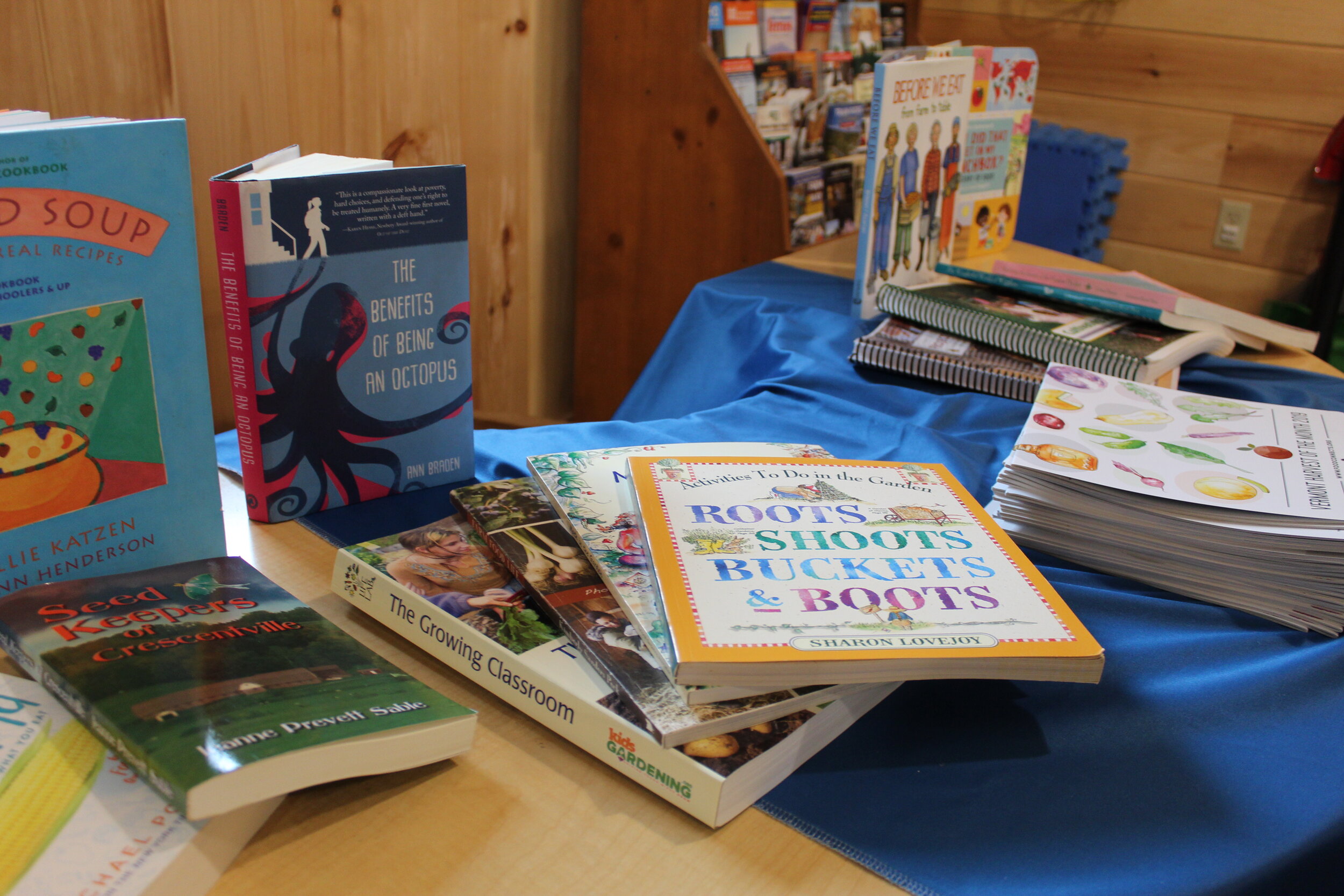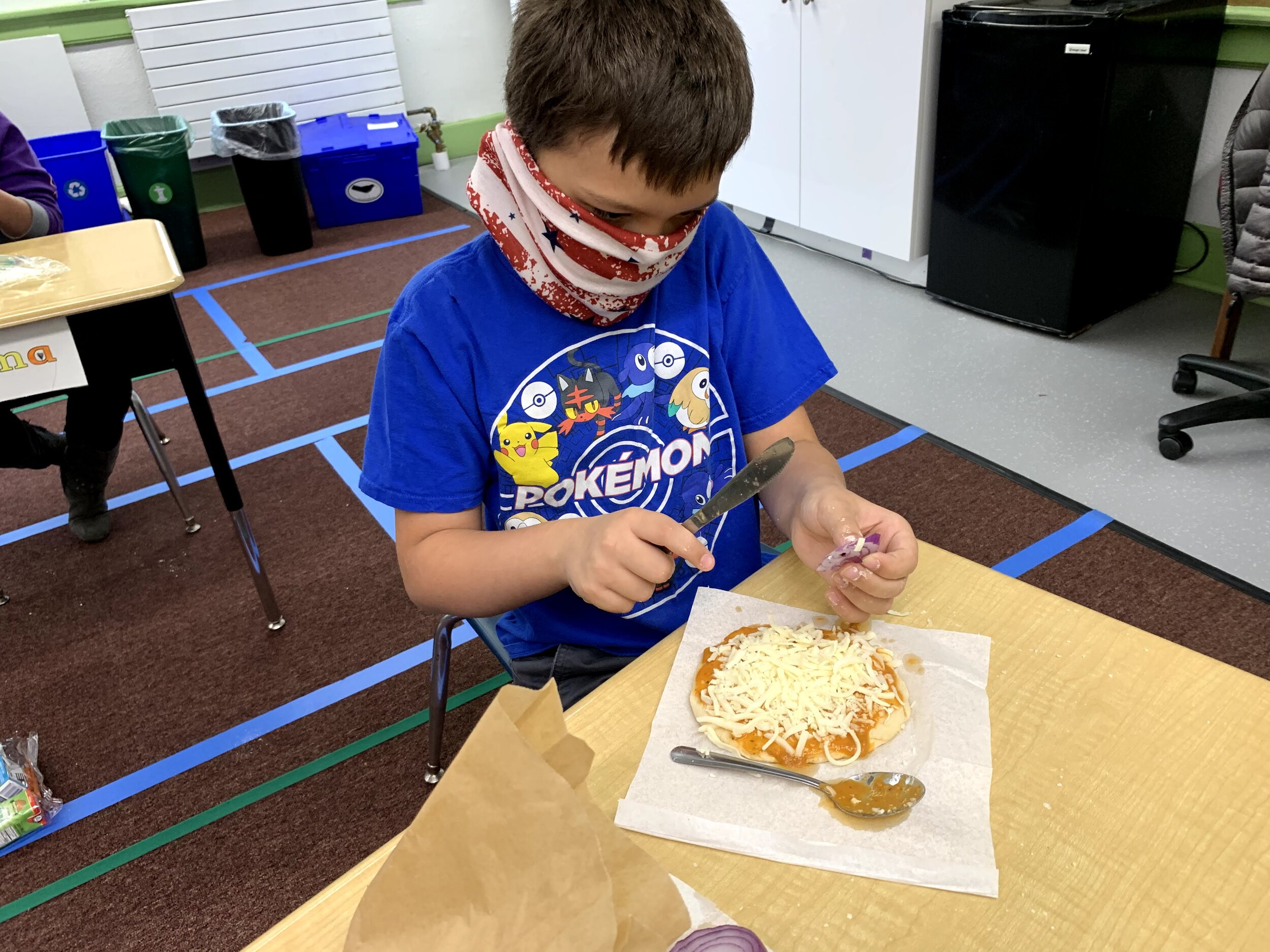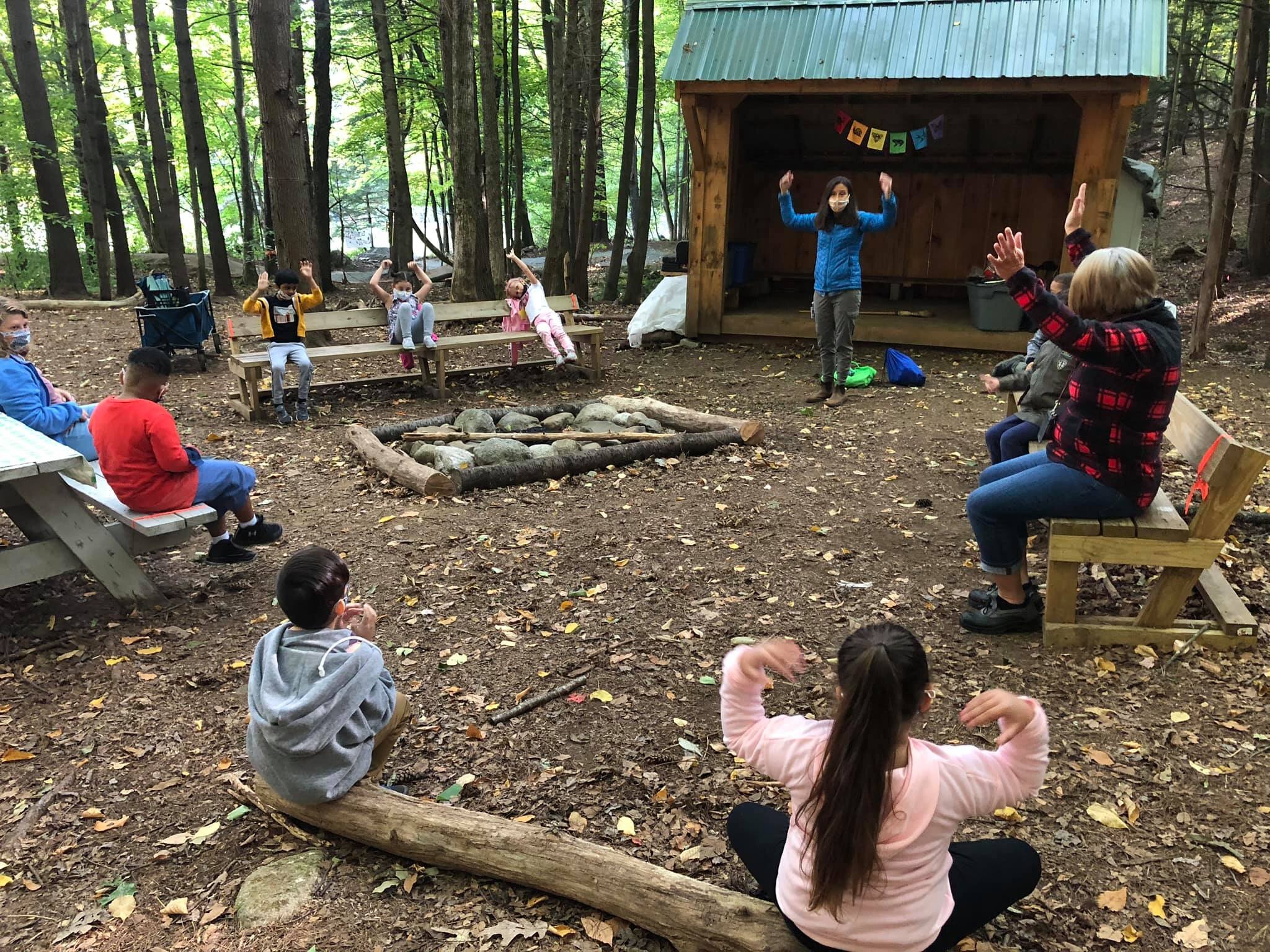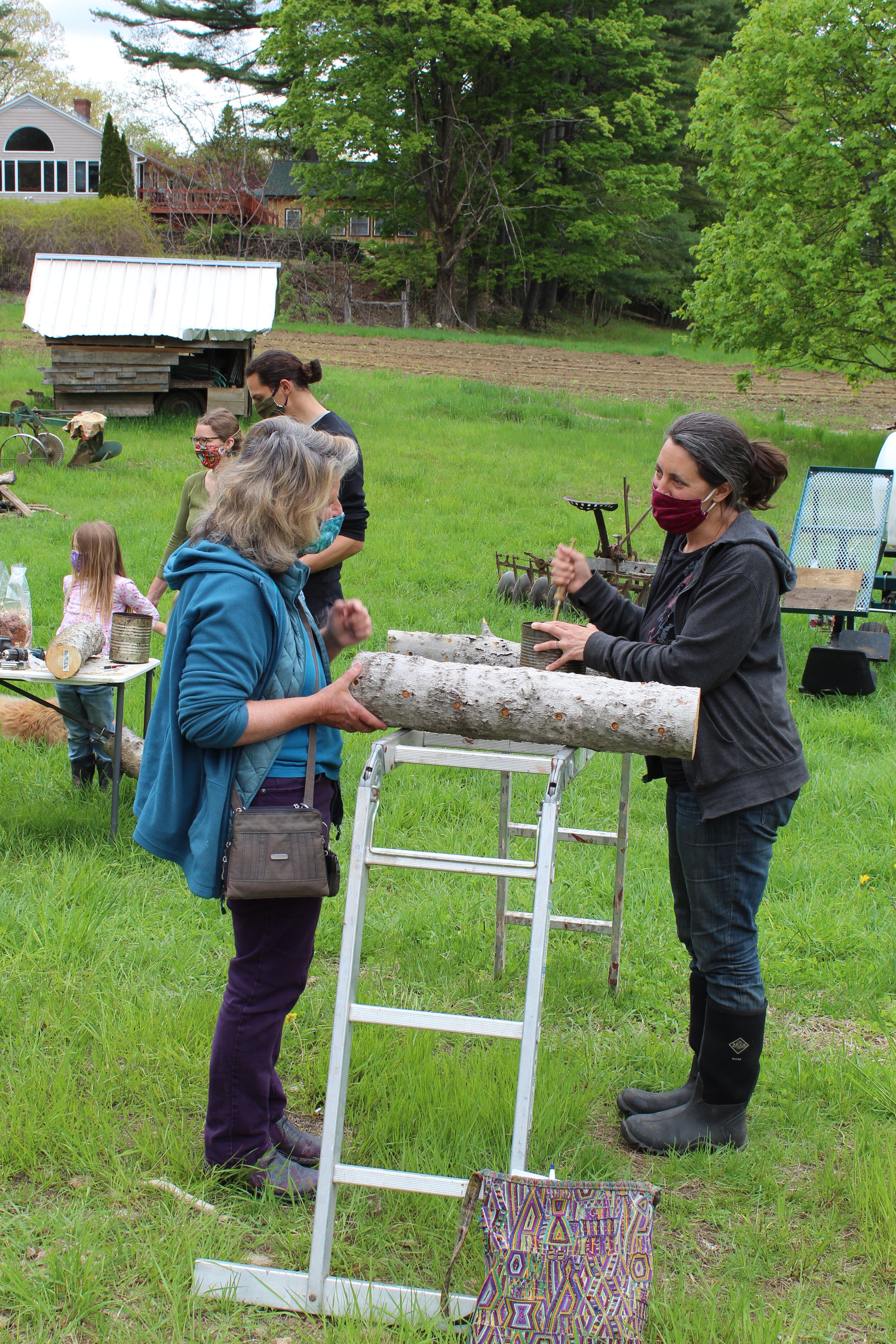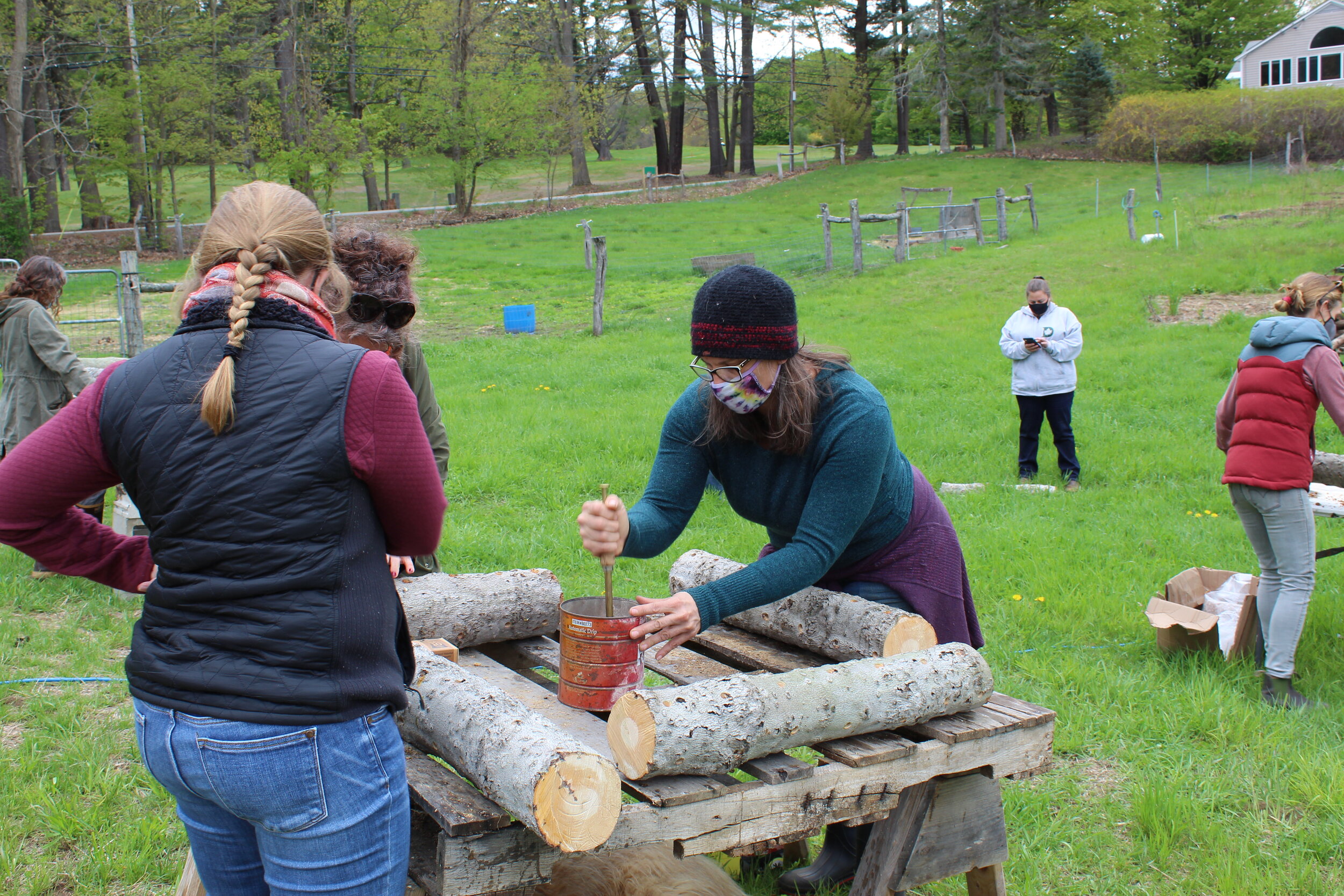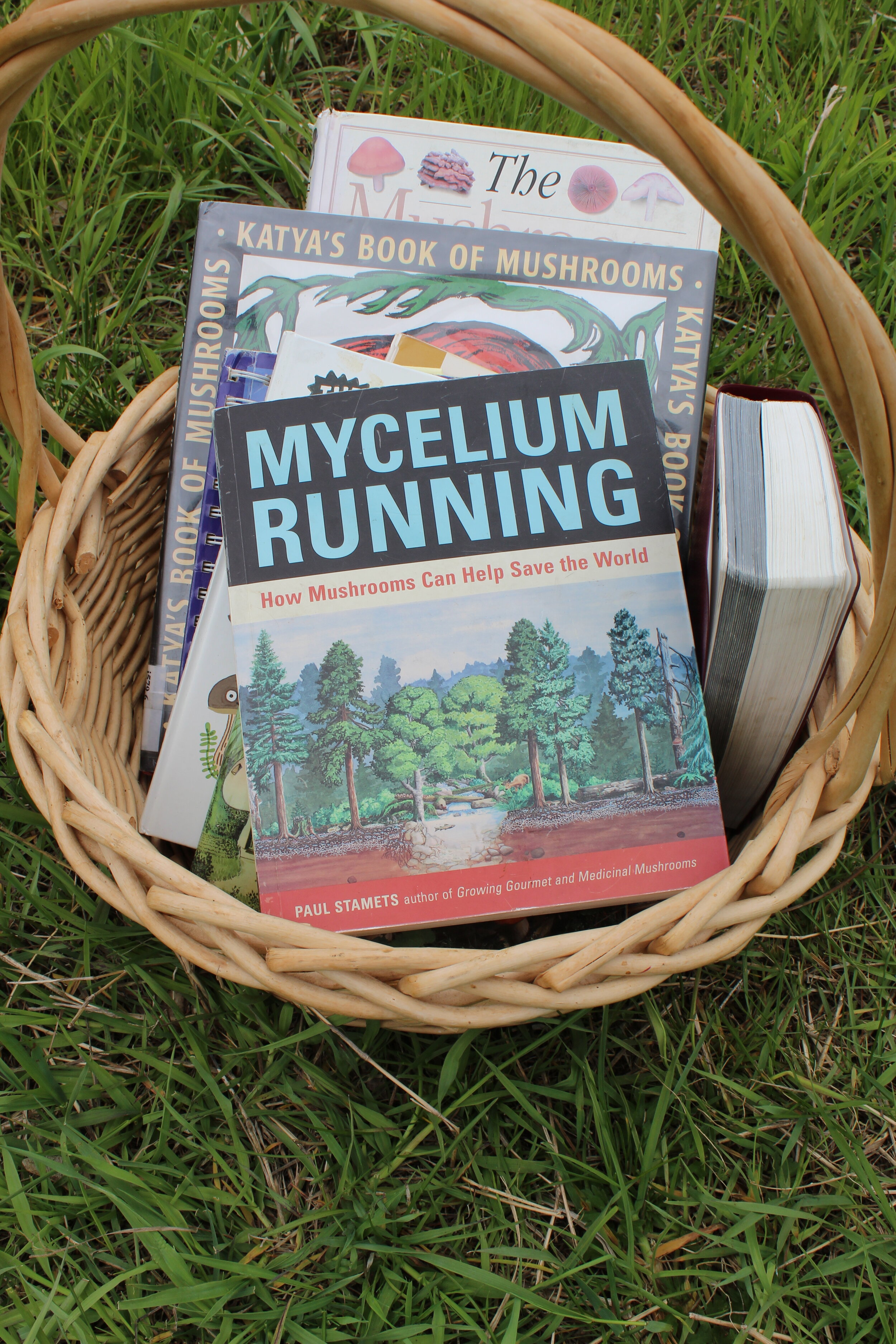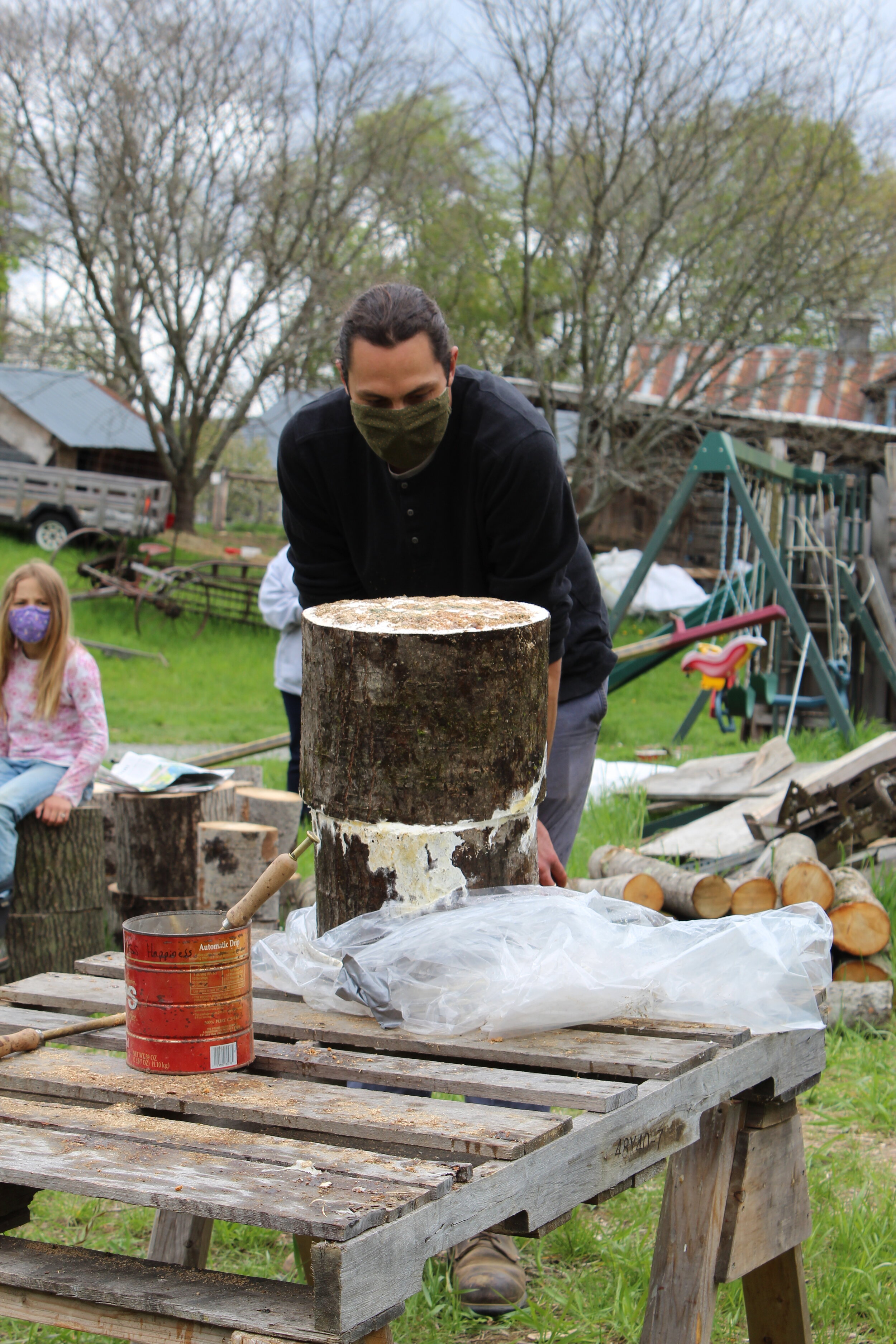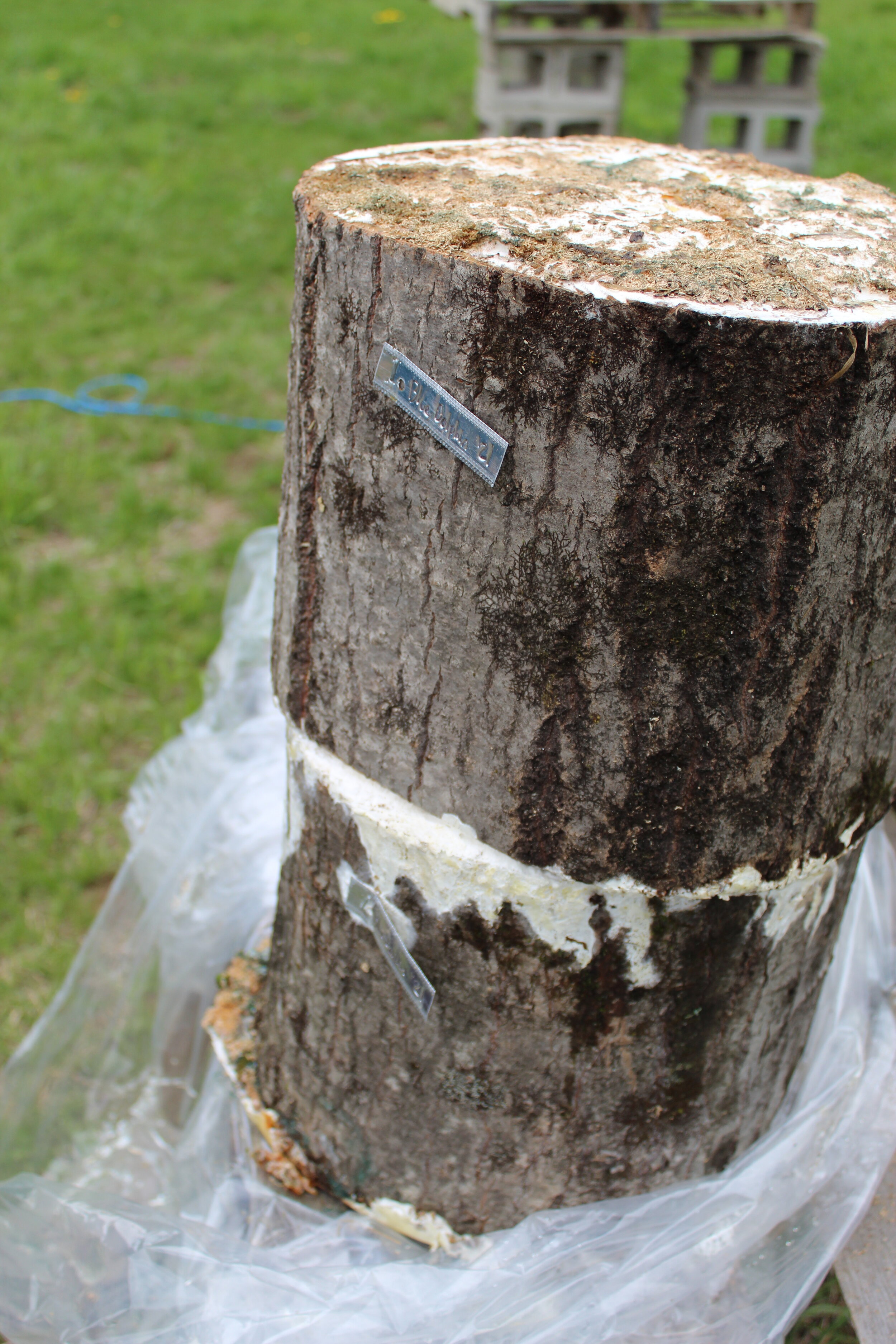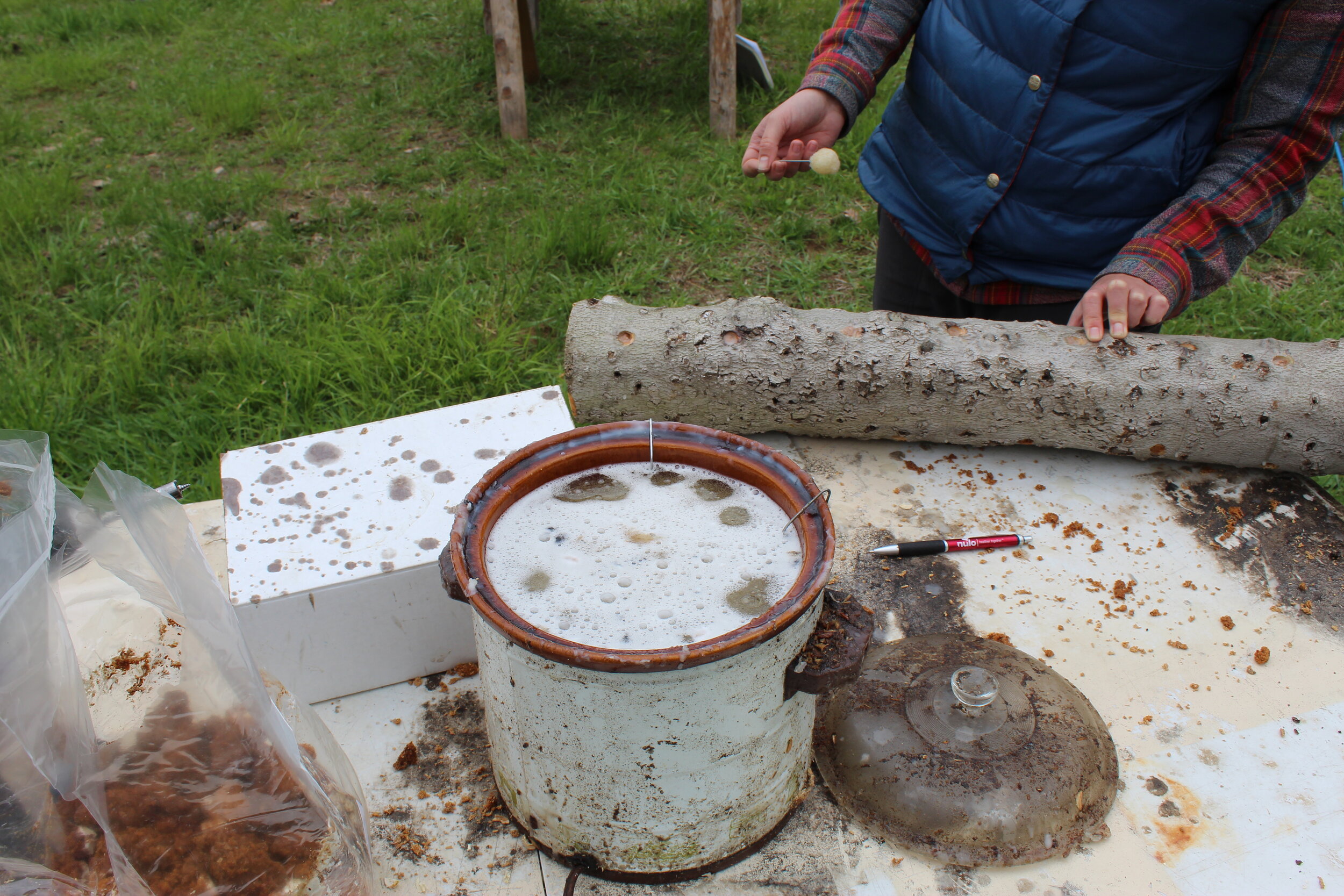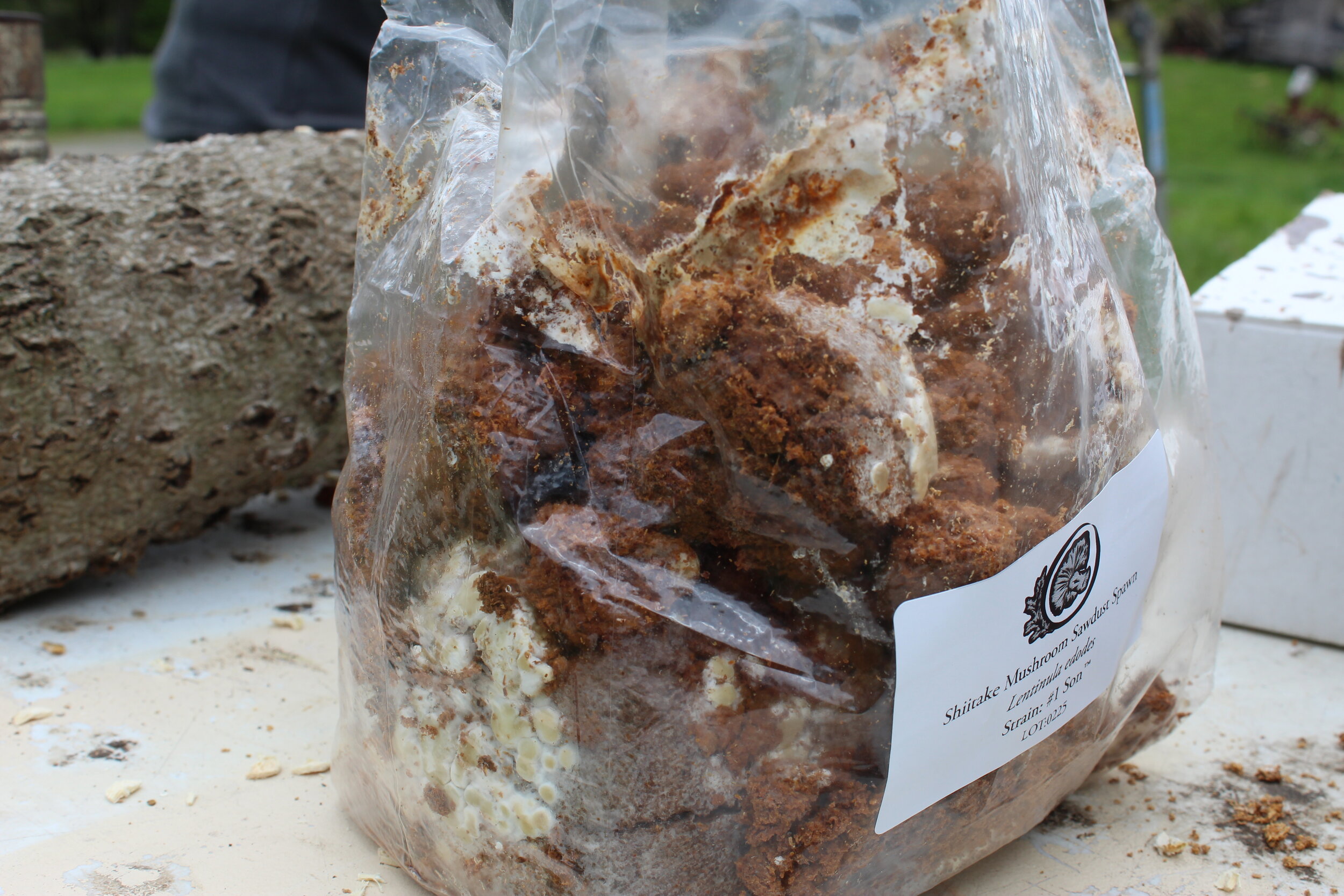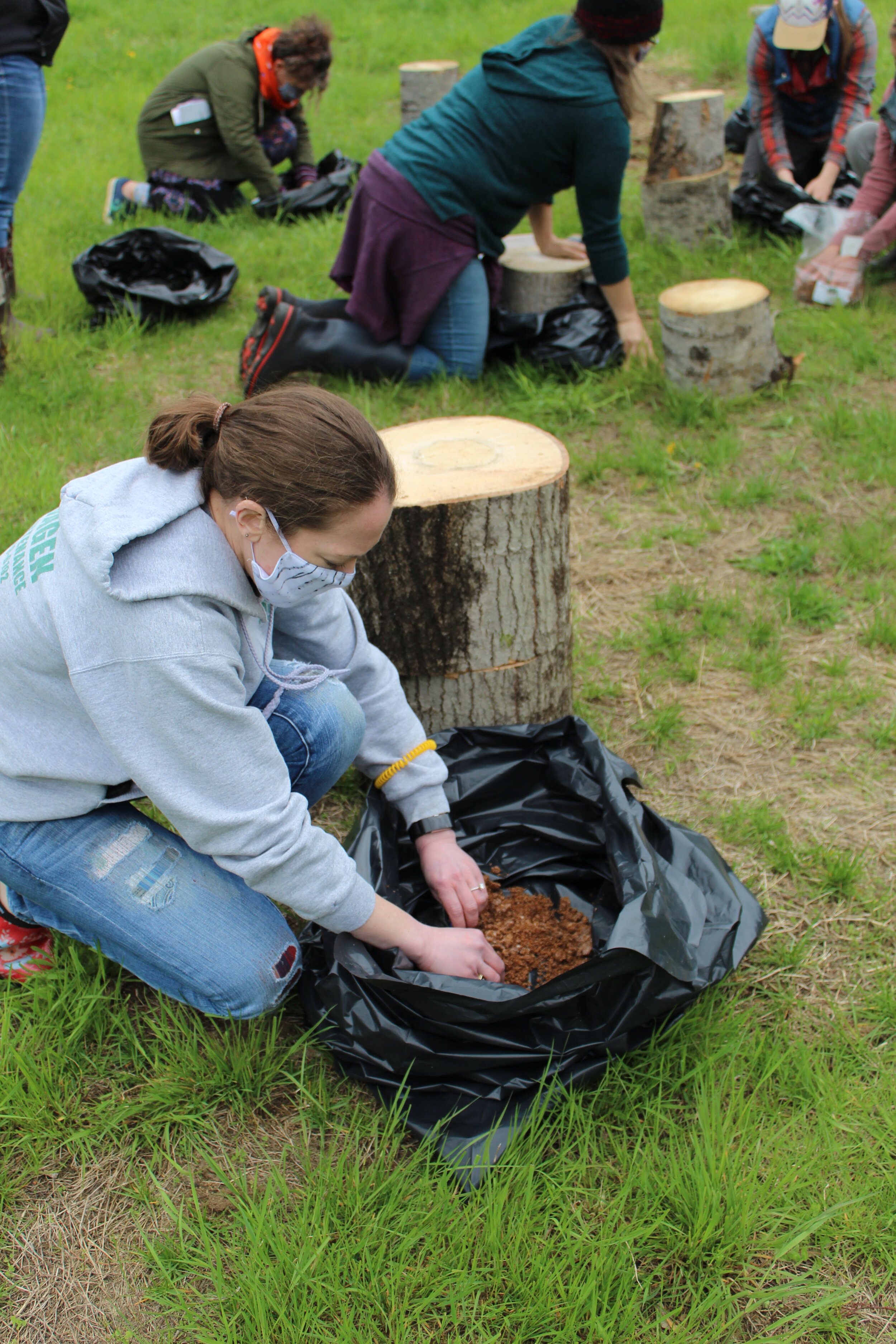Learning scientific observation skills, writing and composition, and history through the lens of fungi helps make the content stick as well! Tara Davis, a parent at Oak Grove School, brought her son’s Mushroom Journal from when he was in Deb’s third-grade class, sharing that it had not only been a highlight of his year but his entire time at Oak Grove.
Jesse helped make it easy to bring the workshop back to participants' schools. Along with Caitlin Burlett, Jesse’s wife and farming partner, they prepped logs, a wax station, and had pre-purchased spores to inoculate the logs.
Each participant got to try out two different cultivation techniques: a “totem” method used slices of logs with shiitake spore sandwiched between them, and a “plug” method, where many holes are drilled into a log and filled with oyster spore.
The main lesson learned was that it’s all about location. Armed with their two inoculated logs and some lesson ideas, Jesse tasked the participants to find a cool, dark, damp forest spot for their logs and to wait patiently for the mushrooms to emerge. In the meantime, we’re excited to see what new lessons and units grow out of this workshop!




